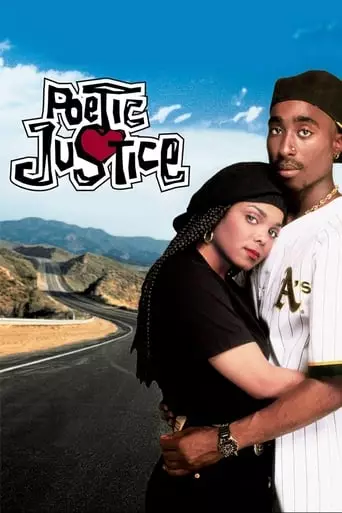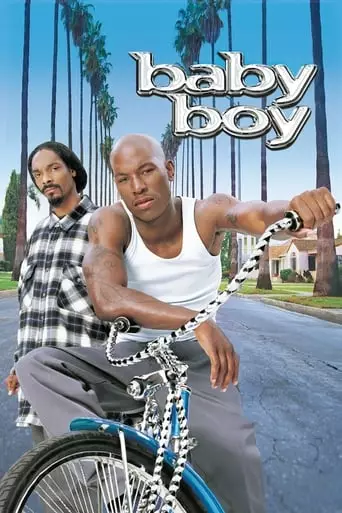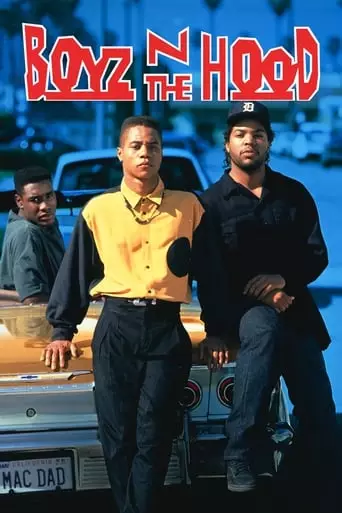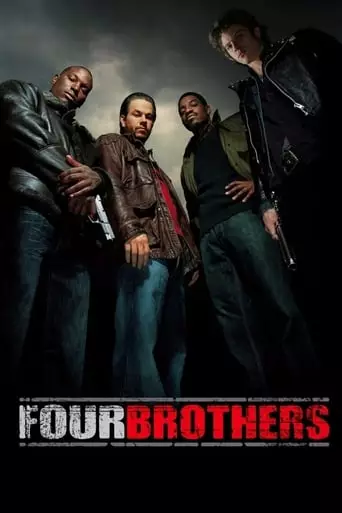Still grieving after the murder of her boyfriend, hairdresser Justice writes poetry to deal with the pain of her loss. Unable to get to Oakland to attend a convention because […]

Still grieving after the murder of her boyfriend, hairdresser Justice writes poetry to deal with the pain of her loss. Unable to get to Oakland to attend a convention because […]

The story of Jody, a misguided, 20-year-old African-American who is really just a baby boy finally forced-kicking and screaming to face the commitments of real life. Streetwise and jobless, he […]

Boyz n the Hood is the popular and successful film and social criticism from John Singleton about the conditions in South Central Los Angeles where teenagers are involved in gun […]

For many years, Nathan Harper has had the uneasy feeling that life with his family isn’t quite what it seems. As he draws closer to uncovering the truth, he is […]

Four adopted brothers return to their Detroit hometown when their mother is murdered and vow to exact revenge on the killers. Four Brothers is a 2005 action thriller directed by […]
John Singleton: A Trailblazer in American Cinema
John Singleton was an iconic American filmmaker, screenwriter, and producer whose work reshaped the landscape of Hollywood by bringing authentic portrayals of African-American life to the forefront of cinema. Known for his powerful debut film, Boyz n the Hood (1991), Singleton’s career was marked by a commitment to telling stories that addressed social issues, cultural identity, and systemic inequality. His groundbreaking work earned him critical acclaim and inspired a new generation of filmmakers.
Early Life and Influences
John Daniel Singleton was born on January 6, 1968, in Los Angeles, California. Raised in South Central Los Angeles, Singleton grew up amidst the challenges and cultural vibrancy of a community often misrepresented in mainstream media. His experiences in this environment deeply influenced his storytelling and provided the foundation for his cinematic voice.
Singleton attended the University of Southern California (USC) School of Cinematic Arts, where he studied screenwriting and developed his craft. While at USC, he won several awards for his scripts, including a Student Academy Award, signaling his potential as a filmmaker. His passion for storytelling and his desire to portray the realities of African-American life in Los Angeles led to the creation of his debut film.
Boyz n the Hood: A Cultural Milestone
In 1991, Singleton made his directorial debut with Boyz n the Hood, a coming-of-age drama set in South Central Los Angeles. Starring Cuba Gooding Jr., Ice Cube, and Laurence Fishburne, the film explored themes of violence, family, and systemic racism through the lives of three young men navigating their environment.
Boyz n the Hood was both a critical and commercial success, earning Singleton two Academy Award nominations for Best Director and Best Original Screenplay. At just 24 years old, he became the youngest person and the first African-American ever nominated for Best Director.
The film was lauded for its raw authenticity, emotional depth, and social commentary, and it remains a cornerstone of American cinema. Its impact extended beyond the screen, sparking conversations about race, inequality, and the systemic challenges faced by marginalized communities.
Expanding His Legacy
Following the success of Boyz n the Hood, Singleton continued to explore themes of identity, struggle, and resilience in his subsequent films.
Poetic Justice (1993)
Starring Janet Jackson and Tupac Shakur, Poetic Justice blended romance and social commentary as it followed the journey of a young poet dealing with grief and love. The film showcased Singleton’s ability to weave tenderness and vulnerability into narratives set against harsh realities.
Higher Learning (1995)
In Higher Learning, Singleton tackled issues of racism, sexism, and campus violence through the experiences of college students. The film’s ensemble cast, including Omar Epps, Kristy Swanson, and Ice Cube, brought to life a thought-provoking exploration of identity and societal pressures.
Rosewood (1997)
With Rosewood, Singleton shifted his focus to historical drama, recounting the 1923 Rosewood massacre in Florida. The film highlighted racial violence and the resilience of the Black community, further cementing Singleton’s reputation as a filmmaker unafraid to confront difficult truths.
A Versatile Filmmaker
While Singleton was best known for his socially conscious dramas, he also ventured into mainstream genres, showcasing his versatility as a director.
Action and Thrillers: Singleton directed the box office hits Shaft (2000), starring Samuel L. Jackson, and 2 Fast 2 Furious (2003), a high-octane installment in the Fast & Furious franchise.
Crime Drama: In Four Brothers (2005), Singleton combined action and family drama in a story about four adopted siblings seeking justice for their mother’s murder.
These films demonstrated Singleton’s ability to balance commercial appeal with compelling storytelling, broadening his influence in Hollywood.
Contributions to Television
In addition to his work in film, Singleton made significant contributions to television. He directed episodes of critically acclaimed series such as Empire and American Crime Story, and he co-created the FX series Snowfall (2017). Snowfall, which explores the origins of the crack cocaine epidemic in Los Angeles, reflected Singleton’s enduring commitment to telling stories rooted in social and cultural realities.
Themes and Style
John Singleton’s films are characterized by their authenticity, emotional depth, and commitment to addressing social issues. Common themes in his work include:
Community and Identity: Singleton’s stories often explore the complexities of growing up in marginalized communities and the struggles of finding identity within them.
Systemic Injustice: Many of his films address the impact of systemic racism, economic inequality, and violence on individuals and communities.
Family and Resilience: Singleton frequently highlighted the importance of family, mentorship, and resilience in overcoming adversity.
Visually, Singleton’s films are grounded in realism, with a focus on capturing the textures and rhythms of everyday life. His storytelling is marked by a deep empathy for his characters and a commitment to amplifying underrepresented voices.
Legacy and Impact
John Singleton’s influence on cinema and culture is profound. As a trailblazer, he opened doors for African-American filmmakers and brought stories of Black life to mainstream audiences with honesty and nuance. His ability to merge entertainment with social commentary inspired a new wave of directors, including Ryan Coogler and Barry Jenkins, who credit Singleton as a key influence on their work.
Beyond his artistic contributions, Singleton was an advocate for diversity and representation in Hollywood. He championed emerging talent and remained dedicated to creating opportunities for underrepresented voices in the industry.
Passing and Tributes
John Singleton passed away on April 28, 2019, at the age of 51, following a stroke. His untimely death was met with an outpouring of tributes from fans, colleagues, and the entertainment community, who celebrated his groundbreaking achievements and enduring legacy.
Conclusion
John Singleton was more than a filmmaker; he was a storyteller who gave voice to the voiceless and shone a light on the realities of marginalized communities. Through his powerful narratives and authentic portrayals, he changed the face of American cinema and left an indelible mark on the industry. Singleton’s legacy lives on through his films, which continue to inspire, educate, and resonate with audiences around the world.